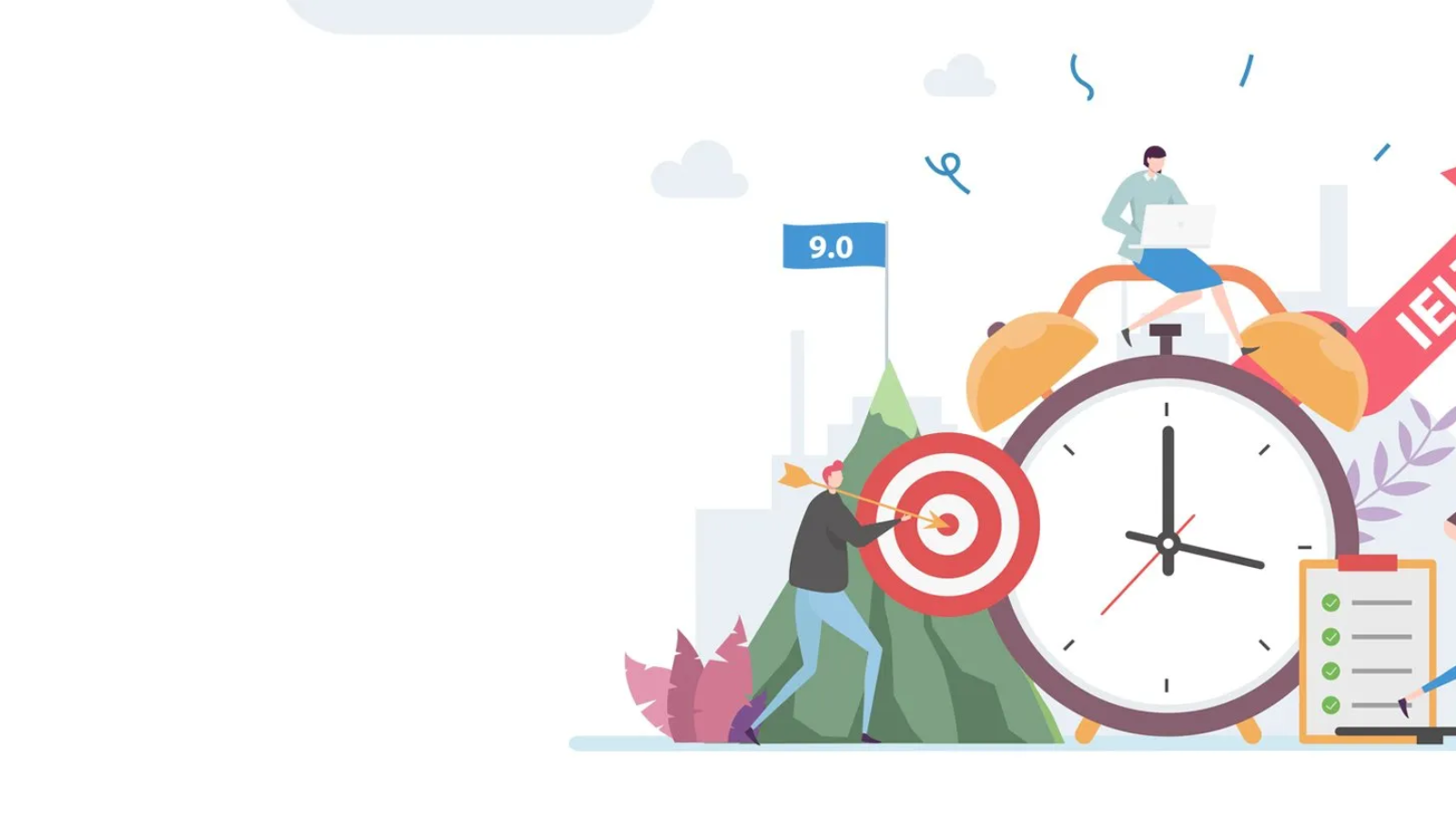Preparing for the IELTS exam can be overwhelming, especially when balancing study, work, or other responsibilities. One of the biggest challenges that IELTS candidates face is managing their time effectively during the exam. Time management plays a crucial role in ensuring that you complete each section of the test with confidence and accuracy.

In this blog, we’ll explore the importance of time management in the IELTS exam and share practical strategies to help you maximize your time and boost your score.
Why Time Management Matters in the IELTS Exam
The IELTS exam tests your proficiency in four areas: Listening, Reading, Writing, and Speaking. Each section is timed, and the clock can quickly become your biggest enemy if you don’t manage it well. Poor time management can lead to rushed answers, incomplete sections, or even missing out on crucial points altogether.
Here’s a breakdown of the time limits for each section:
- Listening: 30 minutes
- Reading: 60 minutes
- Writing: 60 minutes
- Speaking: 11–14 minutes
In all sections, you need to pace yourself carefully to avoid running out of time. Let’s dive into some effective strategies for each part of the test.
Time Management Tips for the IELTS Listening Section
The Listening section consists of four recordings, and you’ll need to answer 40 questions based on the audio you hear. Since you can only listen to each recording once, you must pay close attention and stay focused throughout.
- Preview the questions. Before each recording begins, take a few seconds to quickly read the questions. This will give you an idea of what to listen for and help you anticipate the information you need.
- Write brief notes. As you listen, jot down short notes or keywords to help you remember key details. Don’t try to write full sentences—just capture the most important points.
- Don’t dwell on difficult questions. If you miss an answer or aren’t sure, don’t spend too much time on it. Guess if necessary and move on, as there’s no time to replay the recording.
Time Management Tips for the IELTS Reading Section
In the Reading section, you’ll need to read three passages and answer 40 questions in 60 minutes. The texts increase in difficulty, so it’s important to manage your time carefully.
- Skim and scan. Start by skimming the passage to get a general idea of the content. Then, scan the text for specific details as you answer the questions.
- Don’t read every word. You don’t need to read the entire passage thoroughly. Focus on finding key information and identifying the main ideas quickly.
- Allocate time wisely. Spend no more than 20 minutes on each passage. If you find one passage particularly challenging, try to move through it as efficiently as possible and make up time on the others.
Time Management Tips for the IELTS Writing Section
The Writing section is divided into two tasks: Task 1 (20 minutes) and Task 2 (40 minutes). Task 2 carries more weight, so it’s crucial to allocate your time accordingly.
- Plan before you write. Spend the first few minutes of each task planning your answer. Organize your thoughts, outline your points, and ensure you understand the question fully.
- Stick to the word limit. Don’t waste time writing overly long essays. For Task 1, aim for 150–170 words, and for Task 2, stick to around 250–280 words.
- Leave time to proofread. Set aside 3–5 minutes at the end of each task to check for grammar mistakes, spelling errors, and any areas where you could improve clarity.
Time Management Tips for the IELTS Speaking Section
The Speaking section is an interactive interview with an examiner, and it’s divided into three parts. While you won’t need to worry about managing time here, you do need to make the most of the short time you have to speak.
- Use the 1-minute preparation time wisely. In Part 2, you’ll have 1 minute to prepare before speaking. Jot down a few ideas or keywords on your task card to help guide your response.
- Speak at a natural pace. Don’t rush through your answers. Speak clearly and at a steady pace to ensure the examiner can understand you. This will also help you think about what to say next.
- Expand on your answers. Avoid giving one-word or very short answers. Try to elaborate on your responses by providing explanations, examples, or reasons.

General Time Management Strategies for IELTS Success
- Practice under timed conditions. During your IELTS preparation, make sure to take practice tests under real exam conditions. This will help you get used to the time constraints and improve your ability to manage time effectively during the actual test.
- Prioritize accuracy over speed. While it’s important to manage time, don’t sacrifice accuracy for the sake of finishing quickly. Make sure your answers are correct, clear, and relevant to the question.
- Learn to let go. If you get stuck on a question, don’t let it consume too much of your time. Move on to the next question and return later if time permits.
- Stay calm and focused. Stress and anxiety can make it difficult to manage your time. Practice relaxation techniques like deep breathing to stay calm and focused during the exam.
Conclusion
Time management is one of the most crucial aspects of IELTS success. By preparing ahead, practicing timed exercises, and using these strategies during the test, you can make sure you complete each section efficiently without rushing or leaving questions unanswered.
At Mercy Education, we offer comprehensive IELTS preparation courses designed to help you improve not only your language skills but also your exam strategies. Our experienced tutors provide personalized guidance to ensure you are fully prepared for all aspects of the test. Contact us today to learn more about how we can support your IELTS journey and help you achieve your desired score!



Add a Comment